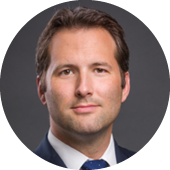This article was originally published on Paperjam. Read the article here.
In the private wealth space, sustainability and ESG factors have become a permanent fixture. We have witnessed a shift in attitude from existing Ultra and High New Worth (UHNW and HNW) clients and a future generation of investors. As ESG regulation reshapes private wealth, how can the wealth managers and advisers evolve alongside the sustainably conscious client?
Like the digital revolution, sustainability is disrupting private wealth and is set to substantially transform traditional approaches to wealth structuring and planning. There is a clear shift in attitude from future-oriented investors who want their preferences to be reflected in their wealth plans and who see alignment between those preferences and potential returns, whether those returns are financial or altruistic. One headline-grabbing example of the latter is the founder of Patagonia, who together with his family has transferred ownership valued at $3 billion to a specifically designed trust and a non-profit organisation to combat climate change and protect underdeveloped land around the globe.[1]
In investment terms, while we continue to see more options for sustainably conscious investors, with for example the proportion of impact investment in portfolios reaching 41% in 2021, this creates new challenges for wealth advisers and the wealth management industry at large.[2] “Increasing priority is being given to the incorporation of ESG factors into long-term wealth plans and it’s a growing part of discussions with successive generations. It’s no longer about preserving only one family’s legacy. Purpose, and the impact of wealth, are top of mind for many. Wealth planning and purpose go hand-in-hand.” explains Simon Gorbutt, Director, Head of Wealth Planning at Lombard International Assurance and Chairman of STEP Benelux.
But sustainable investment isn’t the whole story. Sustainability is pervasive and sustainable outcomes can be served via a range of UHNW and HNW objectives. “Wealth advisers need to guide their clients through their current hesitation and secure a wealth plan suitable for their lifestyle. The reality is, as the world grows ever more complex and uncertain, clients’ need for advice will only continue to grow. Wealth planners need to be able to mitigate clients concerns regarding wealth structuring, protection and diversification, while factoring in the current geopolitical context. ESG factors are a recurrent part of this bigger equation” clarifies Simon.
In the meantime, ESG regulation is rapidly evolving. Whilst advisers are now expected to collect and assess their clients’ sustainability preferences as part of their suitability assessment and reviews (since August 2022), the SFDR Regulatory Technical Standards (Commission Delegated Regulation (EU) 2022/1288) will come into force in January 2023 and will require financial market participants and financial advisers to provide clients with sustainability-related information regarding certain financial products. This includes pre-contractual disclosure documents about sustainable investment options available under a life insurance policy and, where clients invest in such investment options, periodic reports thereafter. “In the private wealth sphere, ESG regulation echoes, and also facilitates, increased appetite from clients for more sustainable investment options. We need to challenge ourselves to think differently about sustainable outcomes. It’s crucial to go beyond the ESG compliance box and lift the lid on how sustainability principles can be used to our advantage in private wealth and in business. Regulation strives for levels of harmonisation and transparency that can drive that trend forward” comments Simon.
Unlocking potential
To stay relevant in their approach to sustainability, practitioners must recognise that sustainability is multifaceted. It’s just as much about investment choices as it is about personal choices, philanthropy, family and business governance. Advisers can help achieve balance but the driving force is purpose. Kenneth Goh, Iraj Ispahani and Philip Marcovici’s recent work is a great example of uncovering new ways in which to achieve this balance. They have applied the principles of a circular economy to the world of private wealth and shown how seeming paradoxes can be converted to mutual benefit. From protecting assets, passing on wealth to future generations, diversifying investment portfolios, to the portability of wealth, wealth planners and advisers differentiate themselves by unlocking the potential in all aspects of a holistic wealth plan, including sustainable investment opportunities. In doing so they stay pragmatic and become enablers of additional value.
“Wealth planning is long-term by design and sustainability is shaping a new mindset which fosters strategies that maximise the real impact of wealth for future generations. The higher up the agenda sustainability sits, the greater the impact it has on things like investment, lifestyle, choice of residence, activism, and wealth stewardship, all of which are factors that we as wealth advisers and professionals are under a duty to consider and reconcile” concludes Simon.
Sustainability will be a marathon, not a sprint.
Wealth Assurance solutions provide investors with the flexibility to efficiently access to alternative investments.

Simon Gorbutt, Director, Head of Wealth Planning
Lombard International Assurance.
[1] Yvon Chouinard, n.d., https://eu.patagonia.com/lu/en/ownership/.
[2] “Investing for Global Impact 2021: Barclays Private Bank,” Investing for global impact 2021 | Barclays Private Bank